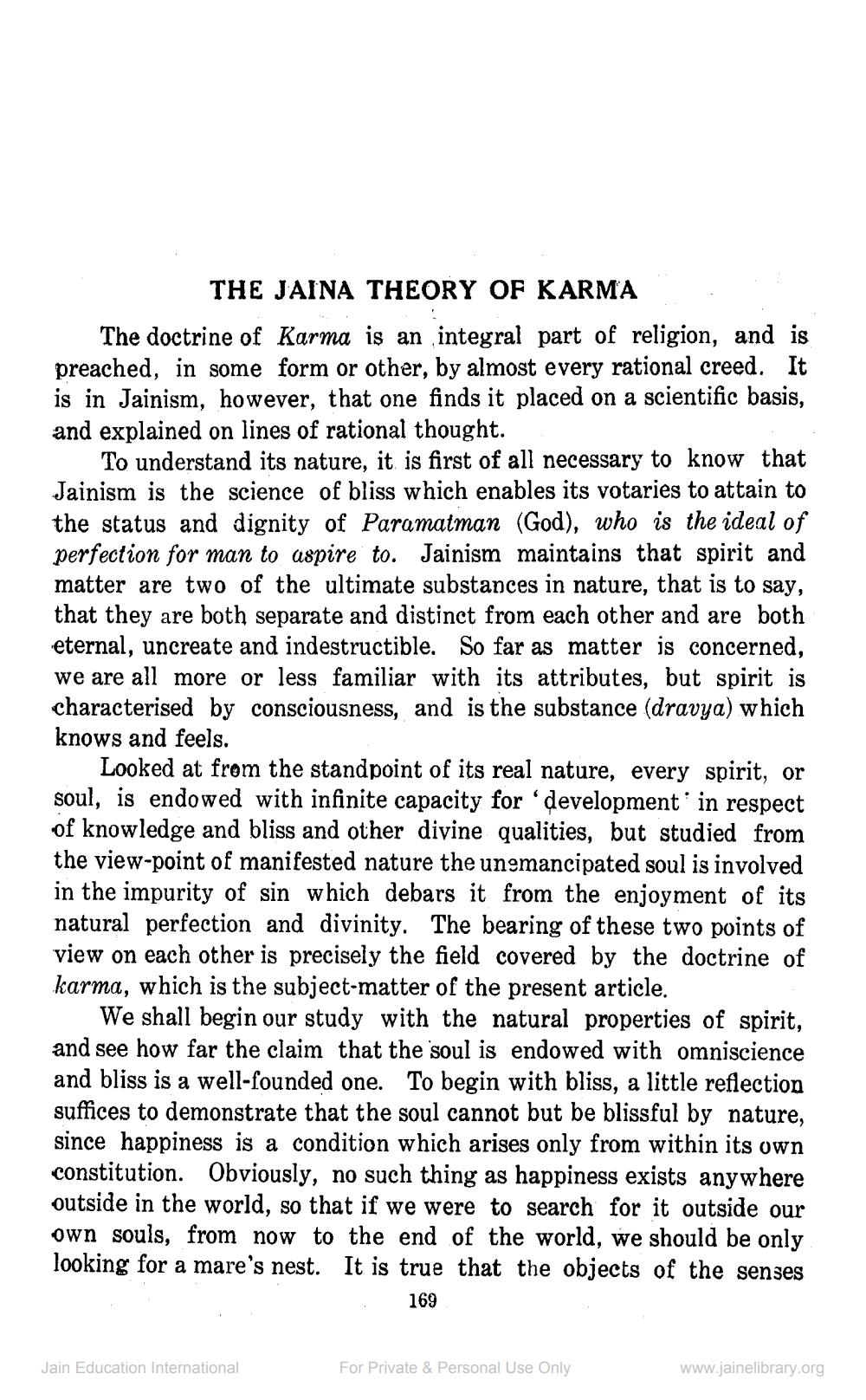________________
THE JAINA THEORY OF KARMA
The doctrine of Karma is an integral part of religion, and is preached, in some form or other, by almost every rational creed. It is in Jainism, however, that one finds it placed on a scientific basis, and explained on lines of rational thought.
To understand its nature, it is first of all necessary to know that Jainism is the science of bliss which enables its votaries to attain to the status and dignity of Paramatman (God), who is the ideal of perfection for man to aspire to. Jainism maintains that spirit and matter are two of the ultimate substances in nature, that is to say, that they are both separate and distinct from each other and are both eternal, uncreate and indestructible. So far as matter is concerned, we are all more or less familiar with its attributes, but spirit is characterised by consciousness, and is the substance (dravya) which knows and feels.
Looked at from the standpoint of its real nature, every spirit, or soul, is endowed with infinite capacity for 'development in respect of knowledge and bliss and other divine qualities, but studied from the view-point of manifested nature the unemancipated soul is involved in the impurity of sin which debars it from the enjoyment of its natural perfection and divinity. The bearing of these two points of view on each other is precisely the field covered by the doctrine of karma, which is the subject-matter of the present article.
We shall begin our study with the natural properties of spirit, and see how far the claim that the soul is endowed with omniscience and bliss is a well-founded one. To begin with bliss, a little reflection suffices to demonstrate that the soul cannot but be blissful by nature, since happiness is a condition which arises only from within its own constitution. Obviously, no such thing as happiness exists anywhere outside in the world, so that if we were to search for it outside our own souls, from now to the end of the world, we should be only looking for a mare's nest. It is true that the objects of the senses
169
Jain Education International
For Private & Personal Use Only
www.jainelibrary.org




